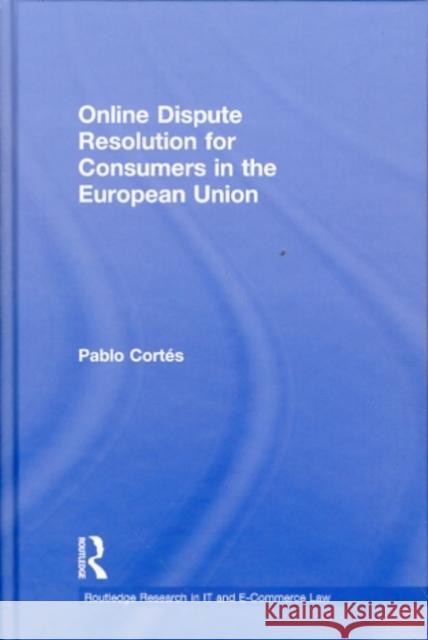Online Dispute Resolution for Consumers in the European Union » książka
Online Dispute Resolution for Consumers in the European Union
ISBN-13: 9780415562072 / Angielski / Twarda / 2010 / 266 str.
A PDF version of this book is available for free in open access via www.tandfebooks.com as well as the OAPEN Library platform, www.oapen.org. It has been made available under a Creative Commons Attribution-Non Commercial-No Derivatives 3.0 license and is part of the OAPEN-UK research project. E-commerce offers immense challenges to traditional dispute resolution methods, as it entails parties often located in different parts of the world making contracts with each other at the click of a mouse. The use of traditional litigation for disputes arising in this forum is often inconvenient, impractical, time-consuming and expensive due to the low value of the transactions and the physical distance between the parties. Thus modern legal systems face a crucial choice: either to adopt traditional dispute resolution methods that have served the legal systems well for hundreds of years or to find new methods which are better suited to a world not anchored in territorial borders. Online Dispute Resolution (ODR), originally an off-shoot of Alternative Dispute Resolution (ADR), takes advantage of the speed and convenience of the Internet, becoming the best, and often the only option for enhancing consumer redress and strengthening their trust in e-commerce. This book provides an in-depth account of the potential of ODR for European consumers, offering a comprehensive and up to date analysis of the development of ODR. It considers the current expansion of ODR and evaluates the challenges posed in its growth. The book proposes the creation of legal standards to close the gap between the potential of ODR services and their actual use, arguing that ODR, if it is to realise its full potential in the resolution of e-commerce disputes and in the enforcement of consumer rights, must be grounded firmly on a European regulatory model.
In relation to the resolution of online consumer disputes, our legal system faces a crucial choice: either to adopt traditional dispute resolution methods that have served our legal systems well for hundreds of years or to find a new method which is better suited to a world not anchored in territoriality or personhood. In the Internet context parties located in different parts of the world make contracts with each other at the click of a mouse. However litigation for these disputes is often inconvenient, impractical, time-consuming and expensive due to the low value of the transactions and the physical distance between the parties. Online Dispute Resolution (ODR) is a form of Alternative Dispute Resolution (ADR) which takes advantage of the speed and convenience of the Internet. ODR is the best, and often the only option for enhancing the redress of consumer grievances, strengthening their trust in the internal market, and making e-commerce more reliable.
This book provides the first in-depth account of ODR for consumers in the EU context, offering a comprehensive and up to date investigation of the development of ODR for business to consumer disputes within the EU. It considers the current development of ODR and evaluates the challenges posed in the growth of ODR, before going on to examine the role of both the European legislator with the Mediation Directive and the English judiciary in encouraging the use of mediation. Pablo Cortés then outlines the need to create a Directive to close the gap between the potential of ODR services and their actual use, thus achieving a greater enforcement of consumer rights within the EU, arguing that ODR, if it is to realise its full potential in the resolution and enforcement of e-commerce disputes, must be grounded firmly on a European regulatory model.











